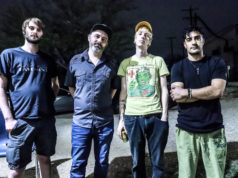Our last marriage counseling session looked like a sad sitcom episode: There was a lot of crying, yelling, uncomfortable silence, and a poor counselor who had to actually tell us to calm down and stop. Just stop.
There was so much rage and resentment circulating in that small office space that you could almost see red plumes of hate engulfing the room and suffocating any feelings of good will that might have still existed between us.
Toward the middle of the session, we talked about the Myers-Briggs Type Indicator personality test. Mine type is ENFP (extroverted, intuitive, feeling, perceiving). His is exactly the opposite. I mean, exactly. We have zero letters in common. Nada.
His stark differences were an attractive quality to me when I was a naïve 18-year-old. He was mysterious. Alien. Like somewhere I’d never been before and really wanted to visit. Well, after visiting I stayed in that outer space for 17 years — ten of which we were married. The rest were spent in high school and college, dating and falling in love.
At the end of our last counseling session, she gave us an honest verbal assessment, but her face said it all. She looked over her notes and sighed the kind of sigh that’s not audible but resides deep inside your eyes and surfaces in the furrowed lines that are normally hidden with profession optimism:
“Well, I have seen completely opposite people make it work,” she said. “But you have to learn how to appreciate your differences and live with them.”
Marriage is all about compromise. And hey, I’m a big fan of giving and taking. Really. But, I wonder if two people can make a good life together when they are completely opposite? I’m still wondering that. We’ve been apart for a while now, and I find myself doing things that I always wanted to do when we were together.
Before, I was waiting. I wanted a partner: somebody to hold my hand and go with me on my journey. Somebody who loves what I love and gets excited about going out into the world and making it a better place. In retrospect, this might have been unrealistic. Does that kind of partnership even exist?
I asked my ex the other day if he believed in soul mates. He doesn’t. He says if soul mates do exist, the chances of finding that person would be so remote that it actually kills the theory. For example, he says, his soul mate might be living in Zimbabwe. I think that’s what makes the idea of soul mates so magical and romantic. But again, I’m absolutely unrealistic, and I know it.
As I picked at the last bits of black beans in my Chipotle salad, I told him (again) that I knew he wasn’t my soul mate, and maybe that was OK? But just like our marriage counselor, I couldn’t hide my face.
He says it was filled with sadness and resignation. And he knew he could never make me happy. I hated myself for being so transparent and heartless. I clearly should have put a bag over my head before opening my big mouth.
Shouldn’t there be a point where you want something to work so badly that it just does? That you can change your expectations and compromise in a way that makes it okay?
I guess the question becomes: How much are we willing to change — to let go of our current self — to make life work with another person? What can we compromise without losing the best parts of who we are?
As always, please write to me with your questions on love, relationships, and life at: xsandoscolumn@gmail.com.
XOXO,
Sarah












